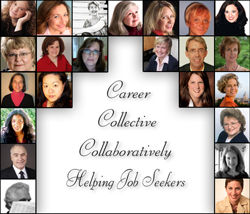
When you are busy organizing job descriptions and sending out hundreds of resumes, the last thing you want to do is to think about composing yet another document. After all, many employers do not ask for a cover letter, and many of them may not take the time to read one. So should you just skip the cover letter? It depends on the application requirements and what you want to say to a potential employer.
A cover letter is not a restatement of your resume. The mistaken assumption that it is is one reason why hiring managers do not read them. However, companies often run multiple ads for different positions, and the first line of your cover letter should make it clear which job you are applying for and how you found out about it.
Use the second paragraph to show how your experience can add value at the employer’s company. This is where people make the mistake of reiterating what is on their resume. Instead of informing the advertising employer that you were the Director at XYZ Advertising Agency, you can state that the position also gave you exposure to various media outlets, key decision makers and Fortune 500 companies.
The third paragraph of your cover letter is your opportunity to clarify anything that is not specifically addressed on your resume, such as you have the skill sets for one career but would like to use them to move in a different direction, potentially into a related career. You can also use this paragraph to give the employer information that they asked for in their ad that would typically not go on a resume such as salary history and expectations.
Use your closing paragraph to express that you are looking forward to speaking with the employer regarding the position. If you send a paper copy of your cover letter, make sure you sign it in the space between Sincerely and your full name. This is one detail people often forget to do.
If the employer does not request a cover letter or specific information that does not go on a resume, you do not have to send one. However, a cover letter gives you an opportunity to showcase your writing skills and to give the employer a feel for your personality and work style.

Most people use the Education section of their resumes to list their degrees to show their qualifications for a particular position. This section of the resume seems pretty cut and dried. List schools, cities and dates of attendance and move on to distributing the resume. However, in today’s difficult economy, being competent may not be enough to land you that coveted first step to a job: being named as a candidate. You need to show the potential employer how you are going to wow them, exceed their wildest dreams, and how you will solve their most difficult problems. You can do this by showing the employer that you are a life-long learner.
By all means, list your degrees on your resume and leave off their dates of completion if you feel that it dates you. But make an effort to keep learning and to update your skills. Add related skills to your professional resume that will build on your primary skill sets. Go to workshops. Take continuing education classes, set aside time for informative webinars. Knowledge becomes quickly obsolete in this age of technology; those who keep learning and use that knowledge in their careers are the employees who will be most productive and get noticed by management.
It isn’t as difficult as it sounds. Yes, learning does take time, but you get the opportunity to experiment during work and see which skills work in a given situation and which don’t. This is valuable knowledge, and it deserves a place on your resume, right under your degree list. Make it snazzy. For example, don’t just list “Internet Search Webinar.” Make sure you list the appropriate webinar name such as “Weddles Guide to Internet Searches.” Weddles is a respected and known name within the job search industry. The name signifies that you learned valuable information by attending this webinar.
Above all, be prepared to talk about any new experiences you listed on your resume with an interviewer. Tell how this new learning can resolve employer problems and how it can be used to train other employees. Make a case for life-long learning, and you may just start a trend at your new workplace to give employees funds and time off to pursue new learning.
A Look At Professional Resume Creation
Executive ResumesProfessional ResumesResume KeywordsResume WritingResumes
Whilst many people are happy to create their own resumes and are able to write a perfectly good resume, there are times when you have to go the extra mile. We know that the type of job that you have will make a big difference to the resume that you submit. It is important to make sure that your resume matches the job you are applying for.
There are times when a normal resume isn’t enough and this may be when it is time to consider professional resume creation. If you are going for a high flying job, for example, or one that is at the top of the career ladder, then you’ll want to make sure that your resume is up to the high standards that a job of this level would expect.
If you aren’t sure how to go about this, then you can contact a company to create a professional resume for you. There are different services and add-ons that you get with these services depending on who you go with for your resume creation and the package that you choose. Of course, you can expect a fantastic resume that sells all of your best bits, your skills and your experiences to make sure that they know who you are, why they should hire you and what you would bring to the table if they were to hire you.
On top of this you get a variety of other services including help with creating the perfect resume and even a digital copy of your resume which is going to allow you to email in your job application rather than post it.
What Do You Do Before The Resume?
Resume Writing
Most job applicants today believe that they should first write their resumes in order for them to land a career. Yes, resumes are truly important and highly critical in one’s professional/corporate success. It plays a significant role for someone to achieve their career goals. But, writing your resume is not the first step.
What you should do first is to look for the most appropriate job for your skills, competencies, and needs. After listing down the job opportunities you found that fits your needs and skills, it is then when you move on to writing your resume.
Always keep in mind that for a resume to be successful and outstanding among all other resumes being submitted for the same position, it should be personalized, specific, and targeted to the job you are applying for. This means, one personalized resume for every job opportunity.
To ensure this, you must first look for the most appropriate job for you and read through the job posting. As you are reading through the posting, make sure your skills, knowledge and ability match that of the posting. Make sure these skills are listed at the beginning of your resume. The person viewing the resumes will see it faster than having to sift through it.
The keywords you use in your resume need to be specific to the job posting. For example, if the job posting is requiring someone with department management skills, make sure these keywords are in several places on your resume and highlighted. And, use them in the cover letter as well.
Standardized resumes and those written using templates no longer succeed to catch the attention of the primary reviewer of resumes. If you want to make your resume stand out among all the piles of resumes submitted for review, it has to be highly specific with contents that have not been seen before by anyone.
Hiring a resume writer to tailor your resume to fit your skills and those of the marketplace is an excellent option. You can then know that your resume will be professional and will take you places.

Men making the decision to stay at home have become a more common decision these days, with extended paternal leave benefits, and partners who are making as much or more money than their spouses. Stay-at-home fathers are more accepted nowadays too, socially, with more men making the decision with their spouses that the family as a whole would be best served by dad doing the bulk of the child-rearing, while mom heads off for work. I recently read that more women than men are working now.
In the decades previous, it was usually the dad who had the career. Women held the title of caregiver to the children, while men pursued their employment and brought home the paychecks. I couldn’t imagine my dad wanting to stay home with us, nor could I imagine my mom wanting to give up that role, as she always says it was the best time in her life.
With the advancement of equal-pay-for-equal-work initiatives all over the world, disparity between the incomes of men and women is not as large a factor in career viability; in fact, it’s often the women in traditional marriages who bring home the larger paycheck. Interesting!
Most often, men making the decision to stay at home starts off with financial reasons. Who earns more, which parent has the more comprehensive insurance policy, which one has a more flexible career or schedule, and whether either parent is able to work from home all need to be weighed and decided upon. If you can take the financial hit from losing a portion of the parents’ combined income and still be a viable bill-paying team, then your options about primary care-givers are much more flexible. However, if you will be extremely challenged to make your monthly financial obligations, you need to consider other options, such as both parents staying at work, and placing the child into a daycare situation.
New challenges still face the parents who choose to have dad stay at home, with this option still not being seen as socially conventional. While it’s true that it is becoming more popular, it is still not the norm, and some men do not fare well with the unconventional arrangement. Stay-at-home dads need to pay attention to their needs, just as women have had to do for centuries. These include socialization with your peers, and perhaps making sure you stay employable. Going to the park with your baby may be nice, but if you are a more social person, really dependent on your former office or job-site personal interactions, you may want to seek a healthy outlet for your needs.
As I was doing research for this article, I wondered if there were groups or resources for stay at home dads. When my children were babies, I joined MOPS (Mothers of Preschoolers) which saved my sanity by meeting every other week with moms in my position (little ones at home) for food, talk, speakers, crafts and ADULT TIME. I have been looking all over the internet and so far haven’t seen any groups similar. Hmmm…. maybe someone should start a “FOPS” group?
No matter what your career, there are probably refresher courses or seminars in your field that can provide the social stimulus you might be craving, as well as keeping you up to date in your line of work. There are lots of available resources online and in-print that can help partners not only make the initial decisions regarding which parent stays at home, but also valuable information about how to deal with that decision once it is made. Parenting classes, financial planning seminars, social gatherings for similarly-situated parents…All can be found with a little research and an honest look at how you want your child-rearing situation to happen. Good luck!

It’s an old adage, and it’s true: there are no second chances when it comes to first impressions. Your interviewer will make on-the-spot judgments about your capabilities within the first few minutes of meeting you, based almost entirely on your personal appearance. Negative initial impressions will be difficult if not impossible to reverse during the interview, even if it goes well. The clothes you wear to the interview say so much to your potential employer: how well you’ll fit in, if you pay attention to little details, and whether you understand professionalism, to name a few.
Many of these recommendations can be summed up as common sense (hopefully)– wear clean, tidy looking clothes, dress professionally and conservative, go for understated over bold. The right clothes might not guarantee you a spot with the company, but the wrong clothes almost certainly will disqualify you. The way you dress for your interview should send a loud message that you will fit in with the company culture and that you understand what it means to be a team player. When planning your interview outfit (preferably days in advance in case repairs need to be made or items professionally cleaned), reference this checklist to ensure that you are dressed for success.
Yes, we know all of this, but lately I’ve had questions from clients that make me think a refresher course is needed.
- Go with a simple, well fitted suit every time. For men, wear a dark suit with a light shirt and silk tie; for women, a suit or a dress and jacket combination work. Even if the corporate culture is laid back, you still need to dress for the interview as if you really are going to an interview.
- Consider wearing blue, preferably navy. To many, blue symbolizes calm, trustworthiness, and confidence. Otherwise, stick to the business neutrals: black, gray, beige, brown.
- Dark dress shoes are best. Ideally, men should wear black lace ups with dark socks. Women should wear low heeled, close toed pumps. Ladies, this is not the place to try out your new stilettos.
- Wear something you’ve worn before and you know you look great in. You want to exude confidence and know you’ll be comfortable.
- Go easy on perfume, cologne, or aftershave. It can seem obnoxious and in a worst case scenario (your interviewer is sensitive or allergic) they can derail the interview altogether. You don’t want to leave your scent on the person’s hand when you leave. Ick.
- Trimmed, styled hair and groomed nails. If you can, get a professional cut before the interview. A fresh cut will also make you feel more confident and put together. Men, make sure your 5 O’clock shadow isn’t showing.
- Go easy on the jewelry. Less is more.
- Pay attention to detail. Everything should be clean, hemmed, ironed, and look well put together.
- Bring a light briefcase or small portfolio; make sure it is in good condition and does not clash with the rest of your outfit.
- Lose the gum, cell phone, MP3 player, and other distracting items. Do not bring a drink, even coffee. Nothing says,”Please don’t hire me” like slurping your non-fat, Caramel Macchiato while texting your BFF. Keep pockets empty to avoid the sound of jingling keys and change; this will also keep pockets from unattractively bulging.
- Cover tattoos and take out piercings, even if you are already aware that workplace policy allows them.
Stick with these simple tips and you’ll do just fine.

With the current state of the economy, jobs are a bit more challenging to come by. For this reason, it is more important than ever that you have a properly planned resume. A poorly planned resume can result in missing out an interview, which can be devastating in this market.
If you are an older job seeker, avoid putting certain dates on your resume. There is no reason to tell an employer how old you are, but if you mention on your resume that you obtained your bachelors degree in 1975, the interviewer will be able to do some quick math and determine that you are very likely in your 50s. Employers are legally not allowed to discriminate based upon age, but there would be no way of knowing that an employer had done so if you don’t get the job. Instead of putting dates on your resume, simply put facts. For instance, list what degrees that you have, not when you obtained them.
If you are an older job seeker, only list relevant information on your resume. For example, if you are a computer programmer, no one cares about how great you were with DOS back in the day. Listing all of the years of experience that you have with DOS only gives hints to your age. Instead, highlight all of the relevant experience that you possess. If you are in the field of technology, generally only the last ten to fifteen years of your experience is truly relevant to your employer. Focusing on the achievements that you have had in this time frame makes you look incredibly marketable while avoiding any possibility for age discrimination.
If you are a younger job seeker, play up all of your experience, but leave your high school and college graduation dates off of your resume. There is no reason to give your interviewer a reason to write you off based upon your youth. As with the older job seekers, it is illegal for employers to discriminate against you, but if you don’t get the job, there would be no way for you to know that you were discriminated against. Be certain that you mention all of the clubs that you are or were a part of, especially if you held an office or leadership position within the clubs. Play up any volunteer experience that you have.
All job seekers should focus on listing their skills and accomplishments on their resume as opposed to simply listing their job responsibilities. Being a cashier does not sound like it would have much relevance when applying for a management position, but you can show how being a cashier brought out your abilities to multi-task and manage large sums of money responsibly if you play up those skills on your resume. Be sure to remember that your potential employer wants to see how you, your personality traits, your knowledge, and your skills will enable you to be an asset to their company. If you explain how you will be an asset to the company in your resume, then you are much more likely to grab the attention of recruiters, land an interview, and get a job. Don’t give the HR staff at your dream job any reason to write you off before they’ve even met you.
The Career Collective
Resume Writing
What is Career Collective?
The Career Collective was formed by Miriam Salpeter (www.keppiecareers.com) and Jacqui Barrett-Poindexter (www.careertrend.com) as a way for resume writers and career coaches to utilize social media and share ideas on certain topics monthly.
Each month a topic is decided upon and each member of the group offers their thoughts on their own blogs. We then link to each other to offer readers every member’s view on the topic.
This is a fantastic tool for job seekers as there isn’t another resume writer/career coach social network community out there like this. You get the benefit of having 23 career experts all neatly linked on one page.
Check in around the first of the month for the next great topic. You might want to follow the thread on Twitter: #careercollective
Until next month!

